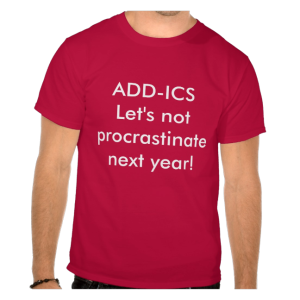Groups should get to name themselves.
It’s a key part of forming a group identity: figuring out why you belong together and distilling it into a name. The Moody Blues, the Daughters of the American Revolution and the Beatles all picked out their own names.
 Some group names are descriptive: the Society for the Prevention of Cruelty to Animals, the Union of Concerned Scientists or the Green Bay Packers whose first jerseys were donated by a local packing company. Some are aspirational, such as the Fighting Irish of Notre Dame or the Fighting Koalas of Columbia College.
Some group names are descriptive: the Society for the Prevention of Cruelty to Animals, the Union of Concerned Scientists or the Green Bay Packers whose first jerseys were donated by a local packing company. Some are aspirational, such as the Fighting Irish of Notre Dame or the Fighting Koalas of Columbia College.
One great reason to pick out you own name, is that when someone else picks out a name for you, nine times out of ten it’s derogatory. ‘The Beatles’ is way better than ‘The Longhair Lads from Liverpool’ and ‘Packers’ is a little better than ‘Cheeseheads’ too.
People with ADHD get labeled with plenty of names.
The community of people who have ADHD has enough common experience to constitute an identifiable group. Until we figure out that we belong in this group, other people are plenty busy naming us. ‘Lazy’ is probably all-time number one. ‘Space cadet’ and ‘space queen’ are recently common, while ‘ne’er-do-well’ and ‘scalawag’ were favored back in the 1700’s.
Actually, ‘ne’er-do-well’ is the best descriptor I’ve ever heard for someone who always falls short of his or her real potential. I’ll never forget the day I figured out that I was always just getting by at the last second, but never doing well. It was not a day to memorialize with a logo-T.
Names for medical patient groups.
Doctors have done something time-saving but disrespectful over the years, namely referring to a patient by his or her diagnosis. The woman who is diabetic might be referred to as ‘the diabetic’ or the man who had a heart attack as ‘the MI’. Instead of referring to ‘the man recovering from successful surgery to remove a tumor in his brain in room 427’, a doctor might try to find his nurse by phoning the nurses station and asking, “Whose got the brain tumor in 427?” That is wrong on so many levels.
When people with cancer, ALS, AIDS or heart disease get together for support, they generally refer to themselves as ‘people with cancer’, ‘people with ALS’, ‘people with AIDS’ or ‘people with heart disease’. There are some exceptions. While it’s technically okay to call someone diabetic, that still lacks kindness. “Joe is a man with diabetes” is so much more true than “Joe is a diabetic.”
Early in my medical training, I found myself referring to people by their diagnosis, because it was quick and useful when I was overworked and tired. One of my fellow residents referred to a certain patient of mine as ‘that back surgery in 14B’.
‘That back surgery’ was a retired physician and public health officer who had overseen an entire state for almost 50 years, through unimaginable, deadly epidemics of smallpox and polio. He had directed quarantines and vaccination programs that saved more lives than I’ll ever care for. It was a privilege to care for him, and I bristled when I heard him referred to by the procedure he came in to undergo.
It’s not that the diagnostic names aren’t handy, it’s that there are respectful alternatives. ‘The distinguished doctor you might owe your life to who now suffers from back pain’ is about right. ‘The person with back pain’ would be a fine alternative if you’re totally rushed.
ADDer is a dumb name. Don’t call me that.
 It’s becoming common–mostly within the ADHD community–to refer to those of us with ADD or ADHD as ADDers. That’s wrong at several levels. First, it has two different pronunciations. You can say it the four-syllable way (A-D-D-ers), but that doesn’t save much time over the six-syllable ‘people with ADD’.
It’s becoming common–mostly within the ADHD community–to refer to those of us with ADD or ADHD as ADDers. That’s wrong at several levels. First, it has two different pronunciations. You can say it the four-syllable way (A-D-D-ers), but that doesn’t save much time over the six-syllable ‘people with ADD’.
If you say it the two syllable way (add-ers), you do save half a second, but it sounds like snakes or adders. It also sounds like a reference to people who add things up. Human calculators.
Second, ‘er’ is the suffix for groups of people who do things in common: fixers, movers, hair-dressers. It doesn’t make sense with ADD. I don’t do ADD. I have ADD. People with flu aren’t flu-ers and people with gout aren’t gout-ers.
Third, ‘ic’ is the typical suffix common for diagnostic groups: asthmatics, diabetics, epileptics. I don’t want to be called ADD-ic.
As we said, referring to people by a condition lacks respect. Calling my patients ‘ADDers’ misses too much of who they truly are:
The fourteen-year old dancer and honor student with ADHD.
The boy who wants to be an astronaut and has ADHD.
The therapist with ADD who finds joy helping adolescents with ADHD adjust and cope better.
The grandpa with ADHD who loves to play outside with his grandkids.
‘Four ADDers’ isn’t a good enough descriptor for these people. I get that we have a desire for brevity and group identity. I understand the need to be with others undergoing the same struggles. But until someone comes up with a moniker that is both descriptive and respectful, ‘ADDer’ is out. I’m going to spend the extra two syllables on ‘people with ADD’.


oren- I certainly agree with your concept, if not your specific point. I try to remember to say “people who are gay”, or ” the man with schizophrenia “.
but I’ve been an ADDer for so long, and I’m very comfortable with it, don’t think I’ll be changing it.
Doug
LikeLike
Doug, you can call yourself an ADDer, but – like I said – I’m not going there.
LikeLike
Well said, Oren!
It’s been my pet peeve for years now, this penchant for “Adders.” I cringe every time. Sounds like a Pep Squad of accountants.
Of course, my own longstanding desire to avoid reducing individuals to a diagnosis creates writing challenges around wordiness. I typically will say “person with ADHD” or “adult with ADHD.”
In support groups for the partners of adults with ADHD, I use the short-hand “pwADHD” for “partner with ADHD.” (One new member asked, “Does that mean Prisoner of War -ADHD?”)
When I am writing about couples, I’ve settled on using “ADHD partner” and “partner” — never “non-ADHD partner,” because what about dual-ADHD couples? One partner IS usually diagnosed well before the other. At least this convention leaves open the possibility.
But “non-ADHD partner” – what the heck does that mean? Defining someone by a diagnosis they don’t apparently have is as bad as defining someone by the diagnosis they do have.
LikeLike
Gina, the tension between precision and brevity doesn’t often resolve. If a wordsmith like yourself can’t do it, I give up.
BTW, how do you pronounce pwADHD? Is it like Elmer Fudd saying ‘plaid’?
LikeLiked by 2 people
I have often wished there was a name for people with adhd that has nothing to do with the disorder itself.
I haven’t managed to come up with one in all the time I’ve thought about it. I do find non-adhd partner incredibly disrespectful. At the very least a label should report what you do have not what you don’t.
I won’t be offended by being called an adhd-er and I do like person with adhd but it is clunky.
Oren, I am a big fan. Hope to read much more and no surprise to see Gina here. Hi, Gina!
LikeLike
[…] some controversy from Oren […]
LikeLike
Oren,
I am so glad you wrote this. I agree 100%. In fact, I wrote about it a few years back (see http://www.healthcentral.com/adhd/c/57718/20418/adder/ ). I have ADD. But I don’t belong to the ADDers club. Nicely done, doctor!
LikeLike
[…] PS Looks like someone else shares my feelings on this. See Dr. Oren Mason’s post at https://attentionality.wordpress.com/2014/08/18/adder-dumb-name/comment-page-1/#comment-249 […]
LikeLike
HI,
I believe I have Add.
I have always sensed that Iam far more Intelligent than I let on to be.
The feeling of almost always feeling stuck in my head. Feel frustrated by not being able to bring it out. I have random moments of Intelligence that just shock the heck out of me! Because i never know when it’s gonna happen. Afterwards, it just falls out of my head again.
VERY ANNOYING! !!
Does anyone else experience this?
LikeLiked by 2 people
Kristine, your description is classic. You will find a lot of people in the ADHD community who resonate with your experience. It is important to consult someone who is expert in diagnosing ADHD, so that you can see if that is what holds you back. If it is ADHD, treatment should help you move past the frustration and annoyance to a place where your gifts are being used in a fulfilling way. All the best!
LikeLiked by 1 person
oh my! Yes, indeed!
LikeLiked by 1 person
Oh and I get bored easily.
LikeLiked by 2 people
Here are my thoughts!
http://www.myaddblog.com/2014/08/distracting-add-adhd-debates-and-arguments.html
LikeLike
I see ADHD as a way of life, a brain formulation, a whole different way of learning. I totally reject the disorder part because it has helped me so much in life and has made me an author, radio show host, therapist, coach, advocate, regular tv personality, youtube presenter, and an award recipient for a whole heck of a lot of volunteerism because I NEED TO LEARN ALL THE TIME and my ADD drives every awesome aspect of my life. I see us as having a lefty brain in a righty world, a mac brain in a PC world, a specialist brain in a generalist world. Due to all of this, I embrace ADDer. Leftys are leftys, queer people are queer people (not people who have the queer), and geniuses are not “people with an IQ over ____” . In Lady Gaga’s words, we’re born this way, so let’s embrace this ridiculously creative alien-like brain of ours 🙂 Less syllables/brevity is highly appreciated as well when trying to explain something and not trying to trip over words and sound too p.c. I already have rented lips syndrome personally and when I’m presenting the less words to explain our curious case of symptoms the better 🙂
I’m also an Aspie (a person with Asperger’s) so I get to be in two lively debates about our name 🙂
Alina Kislenko
Guelph Therapist and Coach specializing in ADHD/Asperger’s
LikeLiked by 1 person
alina
wow!
that is a powerful testimonial. Good for you!
It is very impressive thing when someone can take problems and turn them into assets. For me,, the ADD has been more of a handicap. Although I do assume it has helped me on creativity..
doug, ADDer
LikeLike
[…] Dr. Mason – ADDer Is a Dumb Name. Don’t Call Me That. […]
LikeLike